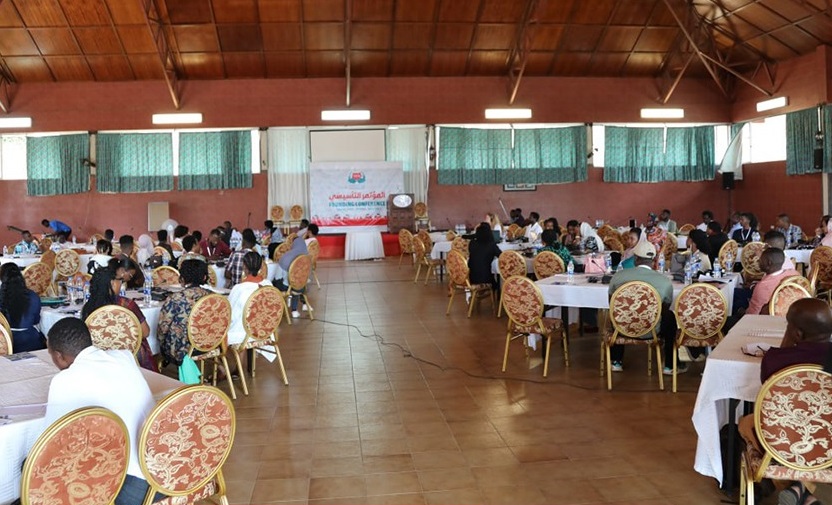Sudan Youth Network and Tagaddum prepare for peace

The founding conference of the Sudan Youth Network kicks off in Entebbe, Uganda, on March 2 (Photo: RD)
Yesterday, the founding conference of the Sudan Youth Network kicked off in the Ugandan city of Entebbe. The network will strive to support ending the war and to realise a civil democratic transformation in Sudan. The Civil Democratic Forces (Tagaddum) are discussing post-war issues in Kampala. In Geneva, the Gulf Cooperation Council urged Sudan’s warring parties to stop fighting.
The conference in Entebbe, in which more than 160 young men and women from Sudan, South Sudan, Ethiopia, Kenya, Chad, and Uganda, are participating, will continue until Tuesday.
The participants will also listen to the experiences of youth in peace-building and overcoming the challenges of social and political divisions in other countries in Africa and Latin America.
“We intend to find the best ways to promote political participation of the youth and benefit from previous political experiences to be able to play a role in ending the ongoing war in Sudan,” youth network member Haidar Abdallah said in his opening speech.
“What the youth essentially want, through this conference, is to contribute to stopping the war and paving the way for the establishment of a state on new foundations,” he stated.
Sudan’s “political forces should emerge from the rift that the political arena is witnessing”. Its community leaders and clerics “must take a strong stand and put pressure on both sides of the conflict to end the war”.
Abdallah also appealed to the regional and international communities to intervene as “Sudan’s peace is part of regional and global peace”.
Tagaddum
Meanwhile, the member parties and groups of the Civil Democratic Forces alliance (Tagaddum), chaired by former PM Abdalla Hamdok, this morning attended the opening session of two workshops to be held the coming days on “justice and transitional justice” and “reform of the security and military institutions” in Sudan.
In an announcement on X platform yesterday, Tagaddum said that a joint closing session, open to the media, is planned for March 7, in which the recommendations of the two workshops will be presented.
Gulf Cooperation Council
The members of the Cooperation Council for the Arab States of the Gulf (GCC), Bahrain, Kuwait, Oman, Qatar, Saudi Arabia, and the United Arab Emirates (UAE) on Friday stressed the urgent need to find a comprehensive solution to the war between the Sudanese Armed Forces (SAF) and Rapid Support Forces (RSF) that erupted on April 15 last year.
During the Enhanced Interactive Dialogue on the High Commissioner’s Report on Sudan during the 55th session of the UN Human Rights Council (OHCHR) in Geneva, Hind Al Muftah, GCC chair and permanent Qatar representative to the OCHCR, called on “the brothers in Sudan to maintain calm, give priority to the language of dialogue, unify ranks, preserve the cohesion of national state institutions, prevent their collapse, and prevent any external interference in Sudanese affairs that would fuel the conflict and threaten regional peace and security”.
She expressed the GCC countries’ deep concern about the suffering of the Sudanese people and welcomed of the November 7 agreement between the warring parties to facilitate the arrival of humanitarian aid to the war-torn regions in the country.
Al Muftah did not refer to the recent refusal of the Sudanese army and Foreign Affairs Ministry to allow the provision of aid to areas under control of the RSF – though denying the right to humanitarian aid to civilians is considered a crime against humanity, international law expert Motasim Ali told Radio Dabanga in mid-February.
More than one-third of the people in Sudan faces acute hunger.











 and then
and then